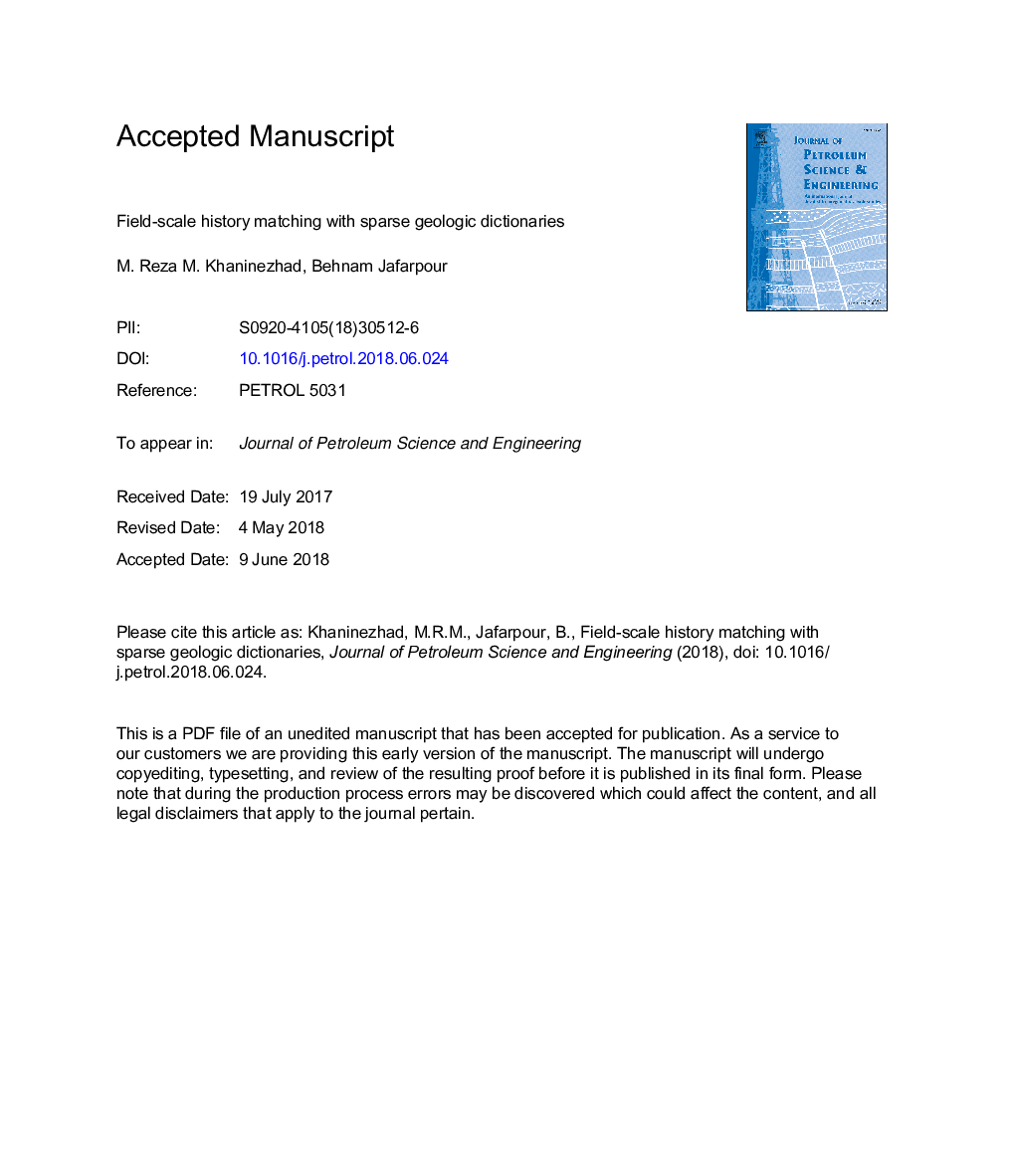| Article ID | Journal | Published Year | Pages | File Type |
|---|---|---|---|---|
| 8124531 | Journal of Petroleum Science and Engineering | 2018 | 52 Pages |
Abstract
Inference of reservoir flow properties from scattered production data poses a poorly-constrained inverse problem with non-unique solutions. Parsimonious description of reservoir properties can alleviate problem ill-posedness and help with preserving the expected geologic continuity of the solution. Low-rank representations can exploit the prevalent correlations in spatially distributed rock properties to compactly describe them. Recent advances in sparse reconstruction, known as compressed sensing, have inspired efficient and flexible model calibration approaches that offer a departure from classical reduced-order parameterization techniques that only use prior knowledge to select the parameterization subspace. Sparse model calibration allows for dynamic subspace identification by adaptively searching through a large combination of possible relevant subspaces (with different geologic features) to identify an appropriate one that best explains the observed data. We recently presented sparse geologic dictionaries as an effective and flexible method for representation of complex geologic connectivity patterns to facilitate the search for plausible solutions. In this paper, we demonstrate the field-scale application of learned sparse geologic dictionaries for history matching. We use a gradient-based implementation of the history matching problem to investigate the feasibility of adopting the developed method for field-scale application. The paper presents practical considerations, important properties, and alternative implementations of the method. The benefits and limitations of applying the method to reservoir history matching are evaluated and discussed. The performance of the sparse history matching approach with geologic dictionaries is also compared with the classical truncated singular value decomposition parameterization in three field-scale case studies. The results show that sparse model calibration with geologic dictionaries has a superior history matching performance for estimating reservoir properties in realistic settings where the trade-offs between problem dimensionality, model resolution, computation speed, geologic uncertainty, and solution plausibility should be reconciled effectively.
Keywords
Related Topics
Physical Sciences and Engineering
Earth and Planetary Sciences
Economic Geology
Authors
M. Reza M. Khaninezhad, Behnam Jafarpour,
